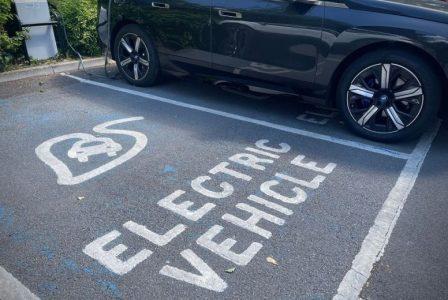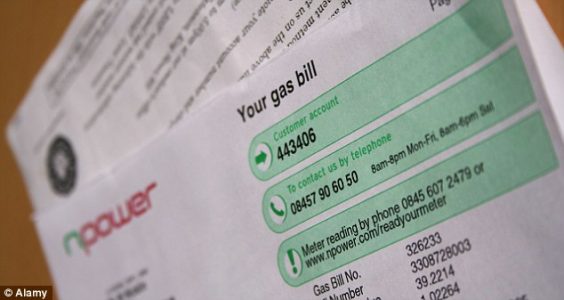Why Britain is giving up on the electric revolution - Dispatch Weekly
November 30, 2022 - Reading time: 6 minutes

Is the electric car revolution over before it even began? That’s what some analysts are saying after the British government recently announced that it was scrapping subsidies for electric vehicles. The policy change has been criticized by environmentalists and the auto industry, but the government says it’s necessary to focus on other priorities.
So what does this mean for the future of electric cars in Britain? And could this spell the end of the electric car revolution?
The UK’s electric car market is stalling
The UK’s electric car market is stalling as consumers are put off by the high price of vehicles and the lack of charging infrastructure. Just over 3,000 pure-electric cars were sold in the first half of 2018, a fall of 15% from the same period last year, according to the Society of Motor Manufacturers and Traders (SMMT).
This is in contrast to other European countries such as Norway, where sales of electric cars continue to rise. In Norway, electric cars made up almost 40% of new car sales in the first half of 2018.
There are a number of reasons for the UK’s lagging electric car market. Firstly, pure-electric cars are still relatively expensive compared to their petrol or diesel counterparts. The Tesla Model S, for example, starts at around £60,000. Secondly, there is a lack of charging infrastructure in the UK. There are currently around 13,500 public charge points, but this is not enough to meet demand.
The government has set a target of having one million electric vehicles on the road by 2020. However, this seems increasingly unlikely given the current rate of sales. If the UK is to meet its emissions targets and switch to cleaner forms of transport, it needs to do more to encourage consumers to buy electric cars.
The high cost of electric cars
Electric cars are significantly more expensive to buy than traditional petrol or diesel cars. In the UK, the price difference is typically around £5,000. This upfront cost is a major barrier to electric car ownership, particularly for low- and middle-income households.
The high cost of electric cars is not just a financial barrier – it’s also an environmental one. Electric cars generate significantly more emissions than traditional petrol or diesel cars over their lifetime, due to the emissions associated with electricity production.
This is particularly problematic in the UK, where the electricity grid is still powered largely by coal and gas. As a result, electric cars are responsible for more emissions than traditional petrol or diesel cars in the UK.
The high cost of electric cars is therefore a major barrier to achieving our climate change goals. We need to find ways to make electric cars more affordable so that they can play a significant role in reducing emissions.
A lack of charging infrastructure
There are currently only around 13,500 public charging points in the UK, and a lack of investment in infrastructure is seen as a big barrier to wider uptake of electric vehicles.
The government has been criticized for not doing enough to support the rollout of electric vehicle charging infrastructure. In particular, there have been calls for more charge points to be installed in rural areas and on highways, where EV drivers often find themselves stranded without a way to recharge their cars.
Some observers believe that the lack of investment in electric vehicle infrastructure is a deliberate attempt by the government to protect the interests of the fossil fuel industry. Others argue that it simply reflects a lack of understanding or political will. Either way, Britain’s progress towards an electric future is being held back by a lack of charging infrastructure.
Range anxiety
Range anxiety is one of the main reasons why Britain is giving up on the electric revolution. The average range of an electric car is only around 100 miles, which is not enough to cover the average person’s daily commute. This means that people are constantly worried about running out of charge and being stranded.
Another reason for range anxiety is that charging stations are still few and far between. This means that even if you do have enough charge to make it to your destination, you might not be able to find a place to recharge your car. This lack of infrastructure is one of the biggest barriers to the widespread adoption of electric cars.
So far, the government has been unwilling to invest in the necessary infrastructure to make electric cars viable for the mass market. Until that changes, it seems unlikely that Britain will be able to embrace the electric revolution.
Electric cars are not as green as you think
Electric cars are not as green as you think. Their batteries are made of toxic chemicals that can pollute the environment, and they require a lot of energy to charge. Even when they’re running on renewable electricity, electric cars produce more emissions than petrol or diesel cars.
The government is now turning its back on electric cars. It’s investing in hydrogen and petrol-electric hybrids instead. These technologies are cleaner and more efficient, and they offer a better driving experience too.
If you care about the environment, it’s time to ditch your electric car. Go green with hydrogen or petrol-electric hybrid instead.
It’s clear that Britain is giving up on the electric revolution, and it’s a shame. Electric cars have so much potential to help reduce pollution and climate change, but it seems like the government is more interested in propping up the fossil fuel industry. Hopefully, other countries will continue to invest in electric cars and make them more affordable for everyone, so that we can all enjoy the benefits of this clean technology.

DW Staff
David Lintott is the Editor-in-Chief, leading our team of talented freelance journalists. He specializes in covering culture, sport, and society. Originally from the decaying seaside town of Eastbourne, he attributes his insightful world-weariness to his roots in this unique setting.



